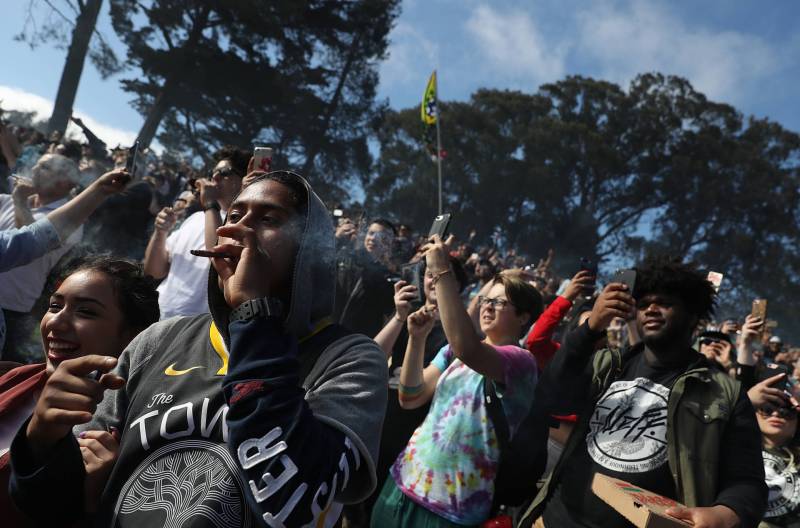Since 2016, when California voters legalized cannabis for recreational use, sales have blossomed into a multibillion-dollar industry — and the promise of this “green gold” was most apparent during the 420 Festival at San Francisco’s Golden Gate Park.
Since 2017, the annual free event has become a more expensive enterprise than the days prior when stoners informally gathered at Hippie Hill. Drum circles and hand-to-hand cannabis sales transformed into big-name concerts and flashy new cannabis brands marketing their wares from merchandise booths.
“People don’t realize there’s a lot of infrastructure that needs to happen to be compliant with all the city departments and to have legal sales and consumption,” said Alex Aquino, a longtime festival organizer. “There’s a lot of restrictions and guidelines, and it’s expensive to do that.”
